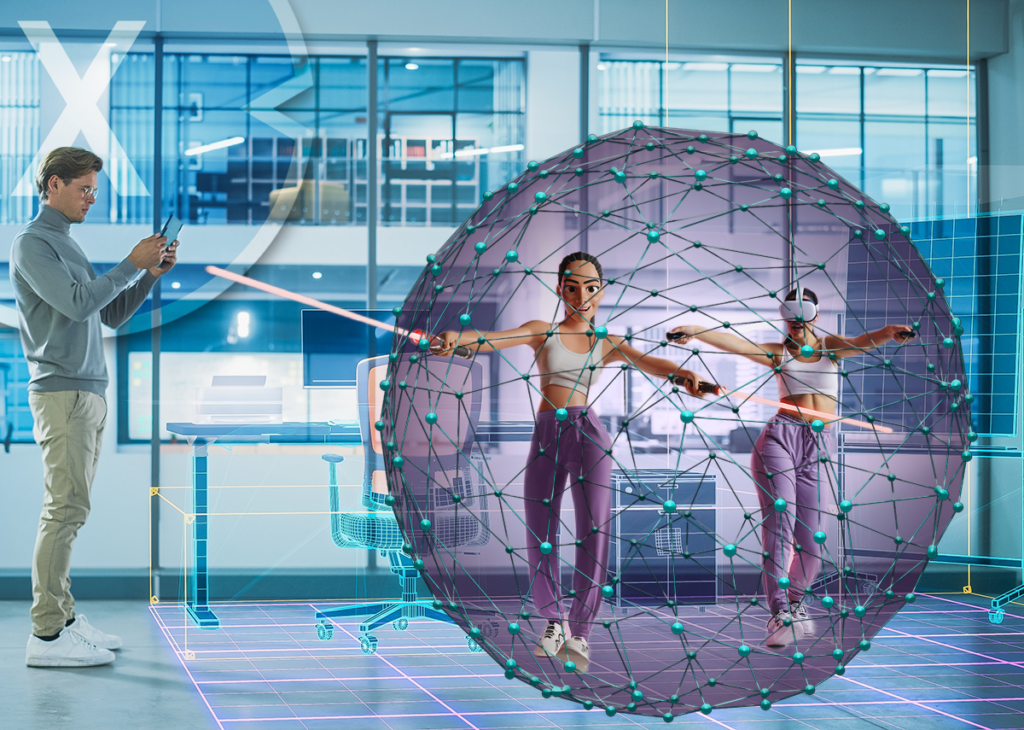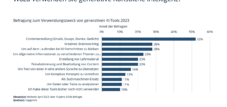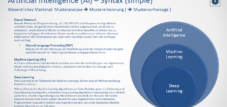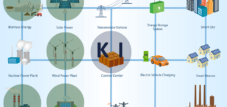Foreign language AI - Artificial intelligence in the world of languages on Xpert.Digital - Currently in over 18 languages worldwide
Language selection 📢
Published on: January 30, 2024 / update from: August 31, 2024 - Author: Konrad Wolfenstein
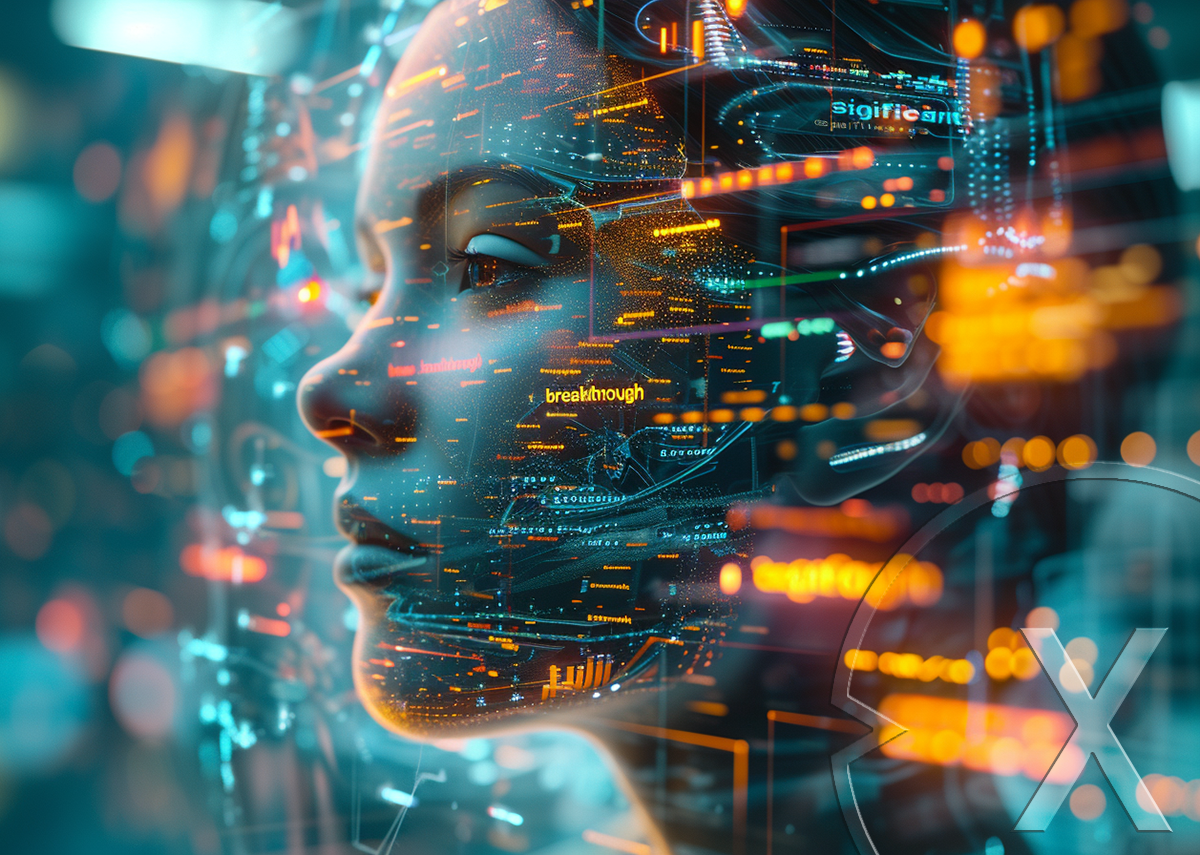
Foreign Languages AI – Artificial Intelligence in the World of Languages on Xpert.Digital – Image: Xpert.Digital
🤖 Artificial intelligence at Xpert.Digital 🧠
📚 Areas of application of AI
🔍 For around eight years, Xpert.Digital has been making intensive use of artificial intelligence (AI) in various sectors, particularly in the areas of data research and analysis. This use of AI methods to comb through large amounts of data, recognize patterns and gain insights based on them reflects the increasing influence of technology in everyday business. Depending on the application context, this use of AI can be referred to as data mining or business intelligence, the latter being specifically aimed at business information.
🌍 AI in intelligent power grids (Smart Grid)
⚡ However, interest in AI extends far beyond pure analysis. I have been working on artificial intelligence since 1987. For a long time now, we have also been using AI in intelligent power networks or smart grids. This technology, which plays an important role in the integration and efficient use of renewable energy, is a key area for the future of energy supply.
More about it here:
🌐 Advances in machine translation
💬 More recently, Xpert.Digital has expanded its spectrum by also driving innovation in the area of machine translation, more specifically Neural Machine Translation (NMT). NMT stands for an advanced form of translation in which a comprehensive neural network is trained to understand and translate entire sentences including context. Compared to previous phrase-based systems, NMT potentially provides more precise and contextually appropriate translations.
📚 Learning processes of neural networks
🔬 These neural networks imitate, albeit rudimentarily, the way human brains work. They consist of nodes and connections that are constantly adapted during the learning process. These adjustments occur through a process called back propagation, in which the network learns from its mistakes and gradually improves.
🔄 Comprehensive learning and adaptability
📖 Unlike traditional methods that require setting each component separately, NMT enables comprehensive learning from millions of example translations. This allows the system to capture not only words, but also the context and specific nuance of a language.
💡 Significant advances and areas of application
🌐 Neural machine translation has already made significant progress and is being used in a variety of ways, including in legal and medical texts, where precision is crucial. By using NMT systems such as Google Translate, DeepL and others, texts can be translated in real time, making communication in a globally connected world much easier.
🎯 Quality assurance through training and human-machine interaction
👥 The quality of the NMT depends heavily on the training data. The best results achieve models that were trained with a large and diversified amount of texts in different languages. Despite the enormous progress, interaction with human translators remains essential. They help to “train” the machines and fine -tune in order to understand and correctly reproduce the natural language use and cultural nuances. The combination of machine learning and human expertise leads to a continuous improvement process that steadily increases the quality and reliability of machine translations.
🧠📈 Our NMT has a high level of translation accuracy. The high translation rate is between 82% and 98%.
💬📊 Quality of NMT translations
Neural machine translation has greatly increased its quality since 2016. For example, in a major language pair like the first in the table below from 80% to 97% in 2022! And no doubt in a few years it will be difficult to tell the difference between a human translator and machine translation in this language pair.
- English – Spanish – 97%
- English – French – 96%
- English – Chinese – 92%
- Spanish – English – 96%
- French – English – 98%
- Chinese – English – 92%
📊 Adaptation to jargon and customer preferences
📝 Another key advantage of NMT is its ability to adapt to the specific jargon and preferences of a particular sector or customer. By training with industry-specific documents, an NMT system can effectively capture and correctly apply specific language usage and terminology. This means that tailor-made translation models can be developed that meet the specific requirements of a specialist area or company.
💻 Technological advancement and availability
🖥️ The performance of computer technology plays a crucial role in the development and application of NMT systems. It enables the processing of gigantic amounts of data in a relatively short time and the implementation of sophisticated algorithms required for training neural networks. With the increasing availability of powerful hardware and cloud-based services, machine translation is becoming more accessible and affordable.
🚀 Advances and the future of machine translation
🔮 The ongoing development of generic translation machines shows that the quality of machine translations is continuously increasing and is approaching the quality produced by human translators. Although customized models currently perform better in specific contexts, the differences are expected to diminish with further advances in AI research and development.
🏛 Impact of artificial intelligence
🌟 Artificial intelligence and especially neural machine translation are not only revolutionizing the way we deal with language and information, but will also have significant social and economic impacts. They enable easier access to information, promote international cooperation and help reduce language barriers.
🌐 AI and machine translation: enablers of change
🚀 Technological progress and social significance
The developments in the field of AI and machine translation exemplify the profound change that technology can bring about in our everyday lives and our professional activities. It is a field that continues to advance rapidly, driven by people's curiosity and desire to improve understanding and exchange across linguistic and cultural boundaries. In this dynamic research field, technological innovations, linguistic understanding and intercultural competence combine to create tools that enrich and simplify our lives in a globally networked world.
📣 Similar topics
- 🤖 The impact of AI on business
- 🌐 The future of energy supply with AI
- 💬 Neural machine translation in focus
- 🧠 How AI mimics the human brain
- 🌍 The role of NMT in global communication
- 📈 The importance of training data for NMT
- 💼 Specialized translation models with NMT
- 💻 The technology behind NMT systems
- 📚 The quality of machine translations
- 🚀 The future of AI and machine translation
#️⃣ Hashtags: #AI #Energy Supply #NeuralTranslation #MachineLearning #Globalization
🎯🎯🎯 Benefit from Xpert.Digital's extensive, fivefold expertise in a comprehensive service package | R&D, XR, PR & SEM

AI & XR 3D Rendering Machine: Fivefold expertise from Xpert.Digital in a comprehensive service package, R&D XR, PR & SEM - Image: Xpert.Digital
Xpert.Digital has in-depth knowledge of various industries. This allows us to develop tailor-made strategies that are tailored precisely to the requirements and challenges of your specific market segment. By continually analyzing market trends and following industry developments, we can act with foresight and offer innovative solutions. Through the combination of experience and knowledge, we generate added value and give our customers a decisive competitive advantage.
More about it here:
🤖 The top 8 translation machines at a glance
💬 In the world of digital communication, machine translation is playing an increasingly important role, driven by advances in artificial intelligence. It allows us to overcome language barriers in almost real time and has therefore revolutionized our understanding of access to knowledge and international communication. Below we take a detailed look at some of the leading generic neural machine translation engines available on the market.
🌐 Google Translate
🔍 Let's start with Google Translate, a service that is often seen as a pioneer in machine translation technology. With a wink you can say that Google Translate has “paved the way”. The algorithms used by Google and the extensive database mean that the quality of the translations in most cases corresponds to the expectations and in many aspects that its competitors exceeds. Google Translate supports an impressive number of languages, which makes the service a true polyglotto in the digital age. The constant improvements and extensions of the service confirm Google's ambitions to remain at the top of the translation technology.
💡 DeepL
📘 DeepL, a relatively new player on the field, hails from Germany and has quickly made a name for himself thanks to his precise and nuanced translations. Built on data from the Linguee database, DeepL distinguishes itself by its ability to deliver translations that often appear as if they were created by a human translator. Although the number of supported languages is smaller than Google Translate, DeepL sets new standards in machine translation quality by leveraging deep neural networks and advanced algorithms.
📊 Microsoft Translator
💼 Microsoft Translator, often integrated into Microsoft Office Word, is another prominent machine translation solution. The cloud-based neural engine supports over 70 languages and boasts a variety of features, including document translation and enabling real-time interactive chats. Despite the competitive price of $10 per billion characters, Microsoft Translator offers a combination of quality and variety that is attractive to many users.
🛒 Amazon Translate
🌍 Amazon Translate, closely linked to Amazon Web Services (AWS), uses advanced neural machine translation techniques to compete in the market. Performance is particularly notable in custom use cases and certain Asian languages. Amazon Translate is great for translating large amounts of text, localizing content, and enabling multilingual communication. By integrating with the AWS infrastructure, Amazon Translate offers a robust solution for businesses and developers.
🏢 SYSTRAN Translate Pro
👥 SYSTRAN Translate Pro, a veteran in the field of machine translation, offers numerous functions for professional users. The cloud-based translation tool supports more than 55 languages and offers specialized models for different industries. SYSTRAN's efficiency and accuracy, particularly in technical and specialized areas, is the result of decades of research and development.
📝 ModernMT (MMT)
🤖 ModernMT stands for a personalized translation solution that stands out for its ability to learn from translation memories and post-editing actions. This adaptive technology provides dynamic, contextual translation suggestions that adapt to the content in real time, resulting in more efficient and accurate translation processes.
📘 Reverso
📚 Reverso, a free AI translation tool, supports translations in 18 languages and offers a range of learning resources for language enthusiasts. Through contextual examples, pronunciation aids and flashcards, Reverso offers a platform on which users can improve their language skills.
🌐 Crowdin
📈 Crowdin goes beyond just translation and offers a comprehensive management platform for translation and localization projects. With a wide range of features, including task management and collaboration tools, Crowdin helps companies and translation teams carry out their projects efficiently.
🌍💬 Machine translation revolution: insight into a limitless future
Developments in machine translation technology have shown that we are only at the beginning of an era in which language barriers will become increasingly less important. These pioneers are witnessing a dynamic field that is constantly growing and evolving to make global communications more seamless and accessible. The focus is not only on the quantity of languages supported, but also on the quality and contextuality of the translations. In an increasingly connected world, machine translation plays a key role in helping us better understand and be understood.
🤖 The power of machine translation
- 🚀 Advances in AI: The Translation Technology Revolution
- 🌐 Google Translate: The pioneer in action
- 🇩🇪 DeepL: Precise translations from Germany
- 💻 Microsoft Translator: Quality and diversity combined
- 📦 Amazon Translate: More than just translation
- 🏆 SYSTRAN Translate Pro: The choice of professionals
- 🧩 ModernMT (MMT): Personalized translations in real time
- 📚 Reverso: Learn and translate
- 📊 Crowdin: Management platform for translation projects
- 🌍 The future of machine translation technology
#️⃣ Hashtags: #Machine Translation #AI #Translation Technology #Language Barriers #Globalization #Translation Software
🗒️ Xpert.Digital: A pioneer in the field of extended and augmented reality
🔍 Machine translation is made possible by various technologies
🤖🧠These technologies are used in various translation applications and platforms to translate texts from one language to another.
Here are some of the most important ones:
📘 1. Statistical machine translation
📊 This method uses statistical models and probabilities to generate translations. A well-known example is the so-called “phrase-based machine translation” (PBMT).
🧠 2. Neural Machine Translation (NMT)
🌐 This is a more advanced technique that uses artificial neural networks to generate translations. The use of deep neural networks has led to significant improvements in translation quality.
📜 3. Rules-based machine translation
📏 This method relies on predefined rules and grammar rules to create translations. Although it can be less flexible than other approaches, it is used in specialized translation areas.
🔗 4. Hybrid models
💡 In practice, hybrid systems are often used that combine multiple technologies to achieve the best translation quality. For example, NMT models can be combined with statistical approaches to achieve better results.
🔄 5. Transfer Learning
🚀 Transfer learning is a technique in which pre-trained models are applied to large amounts of text data to create specialized translation models. This allows for faster adaptation to new languages or domains.
🌟 6. End-to-end machine translation
🎯 This approach aims to optimize the translation process as a whole, rather than breaking it into separate steps. End-to-end models can improve the quality and speed of translations.
🤖 Artificial intelligence (AI) is now used in a wide range of applications and industries
Here are some areas where AI is currently being used. This list is by no means exhaustive, as AI technologies are being integrated into more and more areas to improve efficiency, accuracy and automation.
🩺 Healthcare
AI is used in medical imaging to detect diseases, make diagnoses and create treatment plans. It also helps personalize healthcare and analyze healthcare data.
🚗 Autonomous vehicles
AI systems are crucial for self-driving cars. They allow you to recognize road conditions, traffic signs and other vehicles in order to navigate safely.
💳 Finance
In the financial sector, AI is used for market data analysis, risk management, fraud detection and automated customer support.
🛒 Ecommerce
AI is used to generate product recommendations based on user behavior to increase customer satisfaction and sales.
🗣 Customer service
Chatbots and virtual assistants powered by AI are used in customer service and support applications to answer queries and resolve problems.
🖼 Image and voice recognition
AI models are used to recognize objects in images and convert spoken language into text. This is used in virtual assistants such as Siri, Alexa and Google Assistant.
🏭 Manufacturing
In the manufacturing industry, AI is used for quality control, predicting maintenance needs, and automating production processes.
📚 Education
AI supports personalized learning platforms that offer students customized learning content.
📦 Logistics and supply chain management
AI helps with route optimization, warehouse management and inventory forecasting.
⚖ Legal system
In the legal industry, AI is used to analyze legal documents and predict court rulings.
🌱 Energy and environment
AI is used to optimize energy consumption, manage renewable energy resources and develop environmental monitoring systems.
🌾 Agriculture
In agriculture, AI is used for crop optimization, pest control and crop monitoring.

We are there for you - advice - planning - implementation - project management
Xpert.Digital - Pioneer Business Development
Smart Glasses & KI - XR/AR/VR/MR industry expert
Consumer metaverse or meta -verse in general
If you have any questions, further information and advice, please feel free to contact me at any time.
I would be happy to serve as your personal advisor.
You can contact me by filling out the contact form below or simply call me on +49 89 89 674 804 (Munich) .
I'm looking forward to our joint project.
Xpert.Digital - Konrad Wolfenstein
Xpert.Digital is a hub for industry with a focus on digitalization, mechanical engineering, logistics/intralogistics and photovoltaics.
With our 360° business development solution, we support well-known companies from new business to after sales.
Market intelligence, smarketing, marketing automation, content development, PR, mail campaigns, personalized social media and lead nurturing are part of our digital tools.
You can find out more at: www.xpert.digital - www.xpert.solar - www.xpert.plus



